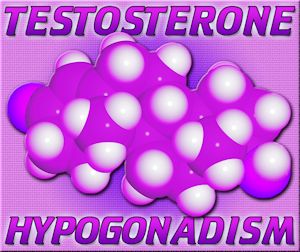Introduction
Insomnia and depression often coexist, creating a challenging cycle that can severely impact an individual's quality of life. For American males, who may be less likely to seek treatment for mental health issues, finding effective solutions is crucial. A recent clinical trial has shed light on the potential of escitalopram, a commonly prescribed selective serotonin reuptake inhibitor (SSRI), to improve sleep quality in this demographic. This article explores the findings of the trial and discusses the implications for treatment strategies.
Background on Escitalopram and Its Use
Escitalopram, marketed under the brand name Lexapro, is widely used to treat depression and generalized anxiety disorder. As an SSRI, it works by increasing the levels of serotonin in the brain, which can help improve mood and reduce anxiety. While its primary use is for mental health disorders, its impact on sleep has been a subject of interest, particularly in patients with coexisting insomnia.
The Clinical Trial: Methodology and Participants
The clinical trial focused on American males aged 25 to 65 who were diagnosed with both insomnia and depression. Participants were randomly assigned to either a treatment group receiving escitalopram or a control group receiving a placebo. The study lasted for 12 weeks, during which sleep quality was assessed using the Pittsburgh Sleep Quality Index (PSQI) and depressive symptoms were monitored using the Hamilton Depression Rating Scale (HDRS).
Results: Significant Improvements in Sleep Quality
The results of the trial were promising. The treatment group showed a significant improvement in sleep quality compared to the control group. The PSQI scores decreased by an average of 3.5 points in the escitalopram group, indicating better sleep quality, while the placebo group saw a decrease of only 0.8 points. Additionally, the HDRS scores improved more markedly in the treatment group, suggesting that escitalopram not only helped with sleep but also alleviated depressive symptoms.
Mechanisms Behind Escitalopram's Impact on Sleep
The exact mechanisms by which escitalopram improves sleep are not fully understood, but several theories have been proposed. One possibility is that the increase in serotonin levels helps regulate the sleep-wake cycle. Another theory suggests that by reducing depressive symptoms, escitalopram indirectly improves sleep by alleviating the psychological burden that can lead to insomnia.
Implications for Treatment of American Males
These findings have significant implications for the treatment of American males with coexisting insomnia and depression. Given that men are often less likely to seek mental health treatment, having a medication that can address both conditions simultaneously could be particularly beneficial. Clinicians should consider escitalopram as a first-line treatment for patients presenting with these dual diagnoses.
Potential Side Effects and Considerations
While escitalopram has shown promise, it is important to consider potential side effects. Common side effects include nausea, dry mouth, and increased sweating. More serious side effects, such as increased risk of suicidal thoughts in young adults, must also be monitored. Patients should be closely followed by their healthcare providers to ensure the benefits outweigh the risks.
Conclusion
The clinical trial provides compelling evidence that escitalopram can significantly improve sleep quality in American males with insomnia and coexisting depression. This dual benefit makes it a valuable option for clinicians treating this population. As with any medication, careful monitoring and consideration of side effects are essential. Future research should continue to explore the mechanisms behind escitalopram's effects on sleep and its long-term efficacy in this demographic.
Contact Us Today For A Free Consultation

- Exploring the Effects of Escitalopram on Weight in American Males: A Comprehensive Review [Last Updated On: February 17th, 2025] [Originally Added On: February 17th, 2025]
- Escitalopram: Effective OCD Treatment for American Males, Enhanced by Psychotherapy [Last Updated On: February 21st, 2025] [Originally Added On: February 21st, 2025]
- Exploring the Impact of Escitalopram on Panic Disorders in American Males [Last Updated On: February 26th, 2025] [Originally Added On: February 26th, 2025]
- Introduction to Escitalopram [Last Updated On: March 2nd, 2025] [Originally Added On: March 2nd, 2025]
- Exploring the Cognitive Effects of Escitalopram: Beyond Mood and Anxiety Treatment in Major Depressive and Generalized Anxiety Disorders [Last Updated On: March 3rd, 2025] [Originally Added On: March 3rd, 2025]
- Escitalopram Use During Pregnancy: Risks and Considerations [Last Updated On: March 4th, 2025] [Originally Added On: March 4th, 2025]
- Exploring Escitalopram: Efficacy and Side Effects in Treating Male Depression and Anxiety [Last Updated On: March 5th, 2025] [Originally Added On: March 5th, 2025]
- Escitalopram's Role in Treating Depression and Anxiety in Adolescent American Males [Last Updated On: March 6th, 2025] [Originally Added On: March 6th, 2025]
- Understanding Escitalopram: Chemical Structure, Mechanism, and Clinical Efficacy Explained for Mental Health [Last Updated On: March 7th, 2025] [Originally Added On: March 7th, 2025]
- Safely Withdrawing from Escitalopram: A Guide for American Men Under Medical Supervision [Last Updated On: March 8th, 2025] [Originally Added On: March 8th, 2025]
- Escitalopram vs. Other Antidepressants: A Guide for American Males on Mental Health Treatment [Last Updated On: March 9th, 2025] [Originally Added On: March 9th, 2025]
- Exploring Escitalopram Interactions: A Guide for American Males on Medications to Avoid [Last Updated On: March 12th, 2025] [Originally Added On: March 12th, 2025]
- Exploring the Impact of Escitalopram in Mental Health Care for American Men [Last Updated On: March 13th, 2025] [Originally Added On: March 13th, 2025]
- Exploring the Safety of Escitalopram Use in Elderly American Males: Essential Precautions [Last Updated On: March 15th, 2025] [Originally Added On: March 15th, 2025]
- Escitalopram Overdose: Symptoms, Actions, and Prevention for American Males [Last Updated On: March 17th, 2025] [Originally Added On: March 17th, 2025]
- Escitalopram's Impact on Sleep in American Males: Effects and Management Strategies [Last Updated On: March 18th, 2025] [Originally Added On: March 18th, 2025]
- Escitalopram: Efficacy, Safety, and Quality of Life Impact in American Males [Last Updated On: March 19th, 2025] [Originally Added On: March 19th, 2025]
- Escitalopram Use in American Males: Monitoring Liver Health and Function [Last Updated On: March 20th, 2025] [Originally Added On: March 20th, 2025]
- Enhancing Escitalopram Adherence in American Males: Strategies and Support [Last Updated On: March 20th, 2025] [Originally Added On: March 20th, 2025]
- Escitalopram's Efficacy in Treating PTSD Among American Males: A Review [Last Updated On: March 20th, 2025] [Originally Added On: March 20th, 2025]
- Escitalopram's Efficacy in American Males: Diverse Case Studies on Depression and Anxiety [Last Updated On: March 20th, 2025] [Originally Added On: March 20th, 2025]
- Escitalopram's Impact on Blood Pressure in American Males: A Clinical Study [Last Updated On: March 21st, 2025] [Originally Added On: March 21st, 2025]
- Escitalopram's Role in Treating Social Anxiety Disorder in American Males: Efficacy and Safety [Last Updated On: March 21st, 2025] [Originally Added On: March 21st, 2025]
- Escitalopram Pharmacokinetics: Essential Insights for American Male Clinicians [Last Updated On: March 22nd, 2025] [Originally Added On: March 22nd, 2025]
- Escitalopram's Efficacy in Treating Body Dysmorphic Disorder in American Males [Last Updated On: March 22nd, 2025] [Originally Added On: March 22nd, 2025]
- Escitalopram: From Lab to Pharmacy, Aiding American Males' Mental Health [Last Updated On: March 22nd, 2025] [Originally Added On: March 22nd, 2025]
- Escitalopram Experiences: American Men's Journey with Depression and Anxiety Treatment [Last Updated On: March 22nd, 2025] [Originally Added On: March 22nd, 2025]
- CBT and Escitalopram: A Synergistic Approach to Mental Health for American Males [Last Updated On: March 23rd, 2025] [Originally Added On: March 23rd, 2025]
- Escitalopram: Effective MDD Treatment for American Men's Mental Health [Last Updated On: March 23rd, 2025] [Originally Added On: March 23rd, 2025]
- American Man's Journey with Escitalopram in Battling Depression [Last Updated On: March 23rd, 2025] [Originally Added On: March 23rd, 2025]
- Managing Escitalopram's Sexual Side Effects: Strategies for American Men [Last Updated On: March 23rd, 2025] [Originally Added On: March 23rd, 2025]
- Switching from Fluoxetine to Escitalopram: Key Considerations for American Males [Last Updated On: March 23rd, 2025] [Originally Added On: March 23rd, 2025]
- Escitalopram's Role in Managing Menopausal Depression: Insights for American Men [Last Updated On: March 23rd, 2025] [Originally Added On: March 23rd, 2025]
- Escitalopram's Role in Treating Major Depressive Disorder Across All Phases [Last Updated On: March 24th, 2025] [Originally Added On: March 24th, 2025]
- Escitalopram's Future in Psychiatric Care for American Males: Advancements and Challenges [Last Updated On: March 24th, 2025] [Originally Added On: March 24th, 2025]
- Escitalopram's Pharmacodynamics: Benefits for American Males with Depression and Anxiety [Last Updated On: March 24th, 2025] [Originally Added On: March 24th, 2025]
- Escitalopram in Geriatric Psychiatry: Efficacy, Safety, and Considerations for Older American Males [Last Updated On: March 24th, 2025] [Originally Added On: March 24th, 2025]
- Escitalopram in Pediatric Males: Safety, Monitoring, and Educational Guidelines [Last Updated On: March 25th, 2025] [Originally Added On: March 25th, 2025]
- Escitalopram: Effective GAD Treatment for American Males - Dosage, Efficacy, and Management [Last Updated On: March 25th, 2025] [Originally Added On: March 25th, 2025]
- Escitalopram's Efficacy in Treating Post-Stroke Depression Among American Males [Last Updated On: March 25th, 2025] [Originally Added On: March 25th, 2025]
- Escitalopram's Long-Term Use in American Males: Benefits, Risks, and Management Strategies [Last Updated On: March 25th, 2025] [Originally Added On: March 25th, 2025]
- Escitalopram Safety in American Males with Liver Disease: Dose Adjustments and Monitoring [Last Updated On: March 25th, 2025] [Originally Added On: March 25th, 2025]
- Escitalopram: Key Insights for Treating Depression and Anxiety in American Males [Last Updated On: March 25th, 2025] [Originally Added On: March 25th, 2025]
- Escitalopram's Impact on Anxiety in American Men: Efficacy, Dosage, and Cultural Insights [Last Updated On: March 26th, 2025] [Originally Added On: March 26th, 2025]
- Escitalopram's Efficacy and Safety in Managing Bipolar Disorder in American Males [Last Updated On: March 26th, 2025] [Originally Added On: March 26th, 2025]
- Escitalopram: Effective SSRI for Depression and Anxiety in American Men [Last Updated On: March 26th, 2025] [Originally Added On: March 26th, 2025]
- Escitalopram Use and Drug Interactions: A Guide for American Males [Last Updated On: March 26th, 2025] [Originally Added On: March 26th, 2025]
- Escitalopram: A Beacon of Hope for American Men with Seasonal Affective Disorder [Last Updated On: March 26th, 2025] [Originally Added On: March 26th, 2025]
- Escitalopram and Serotonin Syndrome: Risks and Management in American Males [Last Updated On: March 26th, 2025] [Originally Added On: March 26th, 2025]
- Escitalopram: Understanding Its Role in Treating Mood Disorders in American Men [Last Updated On: March 26th, 2025] [Originally Added On: March 26th, 2025]
- Escitalopram Enhances Quality of Life in Palliative Care for American Males [Last Updated On: March 26th, 2025] [Originally Added On: March 26th, 2025]
- Escitalopram: Enhancing Cognitive Function and Mental Health in American Males [Last Updated On: March 26th, 2025] [Originally Added On: March 26th, 2025]
- Escitalopram's Efficacy in Treating Chronic Depression Among American Males [Last Updated On: March 27th, 2025] [Originally Added On: March 27th, 2025]
- Escitalopram's Efficacy in Managing BPD Symptoms in American Males: A Pilot Study [Last Updated On: March 27th, 2025] [Originally Added On: March 27th, 2025]
- Escitalopram-Induced Mania in American Males: Risks, Cases, and Management Strategies [Last Updated On: March 27th, 2025] [Originally Added On: March 27th, 2025]
- Escitalopram and Alcohol Risks for American Males: Health Impacts and Safety Guidelines [Last Updated On: March 27th, 2025] [Originally Added On: March 27th, 2025]
- Escitalopram's Impact on Physical Health in American Males: Benefits and Risks [Last Updated On: March 27th, 2025] [Originally Added On: March 27th, 2025]
- Escitalopram: Enhancing Mental Health in American Males - Efficacy and Holistic Care [Last Updated On: March 27th, 2025] [Originally Added On: March 27th, 2025]
- Escitalopram's Impact on Cognitive Skills in American Males: A Comprehensive Review [Last Updated On: March 27th, 2025] [Originally Added On: March 27th, 2025]
- Escitalopram Interactions with Antidepressants: Insights for American Males [Last Updated On: March 28th, 2025] [Originally Added On: March 28th, 2025]
- Escitalopram: A Promising Treatment for Neuropathic Pain in American Males [Last Updated On: March 29th, 2025] [Originally Added On: March 29th, 2025]
- Escitalopram's Efficacy and Safety for Depression in American Male Adolescents [Last Updated On: March 29th, 2025] [Originally Added On: March 29th, 2025]
- Escitalopram's Efficacy in Treating Agoraphobia Among American Males: A Review [Last Updated On: March 30th, 2025] [Originally Added On: March 30th, 2025]
- Escitalopram's Cardiovascular Effects in American Males: A Comprehensive Analysis [Last Updated On: March 31st, 2025] [Originally Added On: March 31st, 2025]
- Escitalopram's Role in Treating Eating Disorders Among American Males [Last Updated On: March 31st, 2025] [Originally Added On: March 31st, 2025]
- Escitalopram's Impact on Autonomic Nervous System in American Males: Cardiovascular Health Insights [Last Updated On: April 2nd, 2025] [Originally Added On: April 2nd, 2025]
- Escitalopram: Effective PMDD Treatment and Its Impact on American Males [Last Updated On: April 2nd, 2025] [Originally Added On: April 2nd, 2025]
- Optimizing Escitalopram Dose Titration for American Males: A Medical Perspective [Last Updated On: April 3rd, 2025] [Originally Added On: April 3rd, 2025]
- Escitalopram's Role in Treating Dysthymia Among American Males: Efficacy and Management [Last Updated On: April 3rd, 2025] [Originally Added On: April 3rd, 2025]
- Escitalopram's Potential in Treating Postpartum Depression in American Men: Efficacy and Impact [Last Updated On: April 5th, 2025] [Originally Added On: April 5th, 2025]
- Escitalopram Enhances Quality of Life in American Men with Depression: A Systematic Review [Last Updated On: April 6th, 2025] [Originally Added On: April 6th, 2025]
- Escitalopram and Suicide Risk in Adolescent Males: A Comprehensive Analysis [Last Updated On: April 8th, 2025] [Originally Added On: April 8th, 2025]
- Transitioning from Citalopram to Escitalopram: A Guide for American Men [Last Updated On: April 8th, 2025] [Originally Added On: April 8th, 2025]
- Escitalopram Side Effects Management for American Males: A Comprehensive Guide [Last Updated On: April 9th, 2025] [Originally Added On: April 9th, 2025]
- Effective Strategies for American Men to Manage Escitalopram Withdrawal [Last Updated On: April 9th, 2025] [Originally Added On: April 9th, 2025]
- Escitalopram and Psychotherapy: Enhancing Mental Health in American Men [Last Updated On: April 10th, 2025] [Originally Added On: April 10th, 2025]
- Escitalopram: Benefits and Considerations for American Males with Psychiatric Disorders [Last Updated On: April 11th, 2025] [Originally Added On: April 11th, 2025]
- Genetic Factors Influencing Escitalopram Efficacy in American Males: A Pharmacogenomics Insight [Last Updated On: April 12th, 2025] [Originally Added On: April 12th, 2025]
- Escitalopram: Enhancing Mental Health in American Men [Last Updated On: April 12th, 2025] [Originally Added On: April 12th, 2025]
- Escitalopram's Role in Treating Body Image Disorders in American Males [Last Updated On: April 13th, 2025] [Originally Added On: April 13th, 2025]
Word Count: 553





















